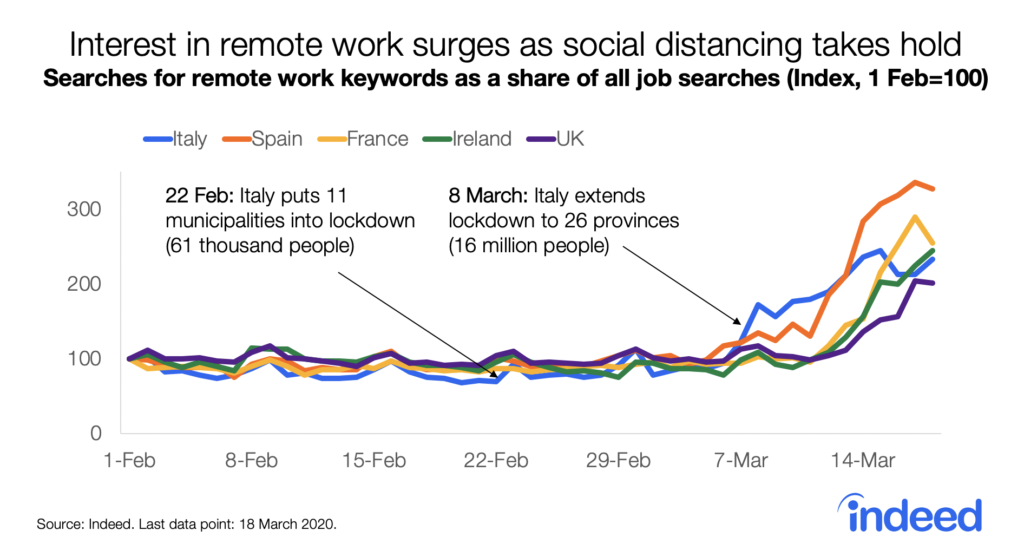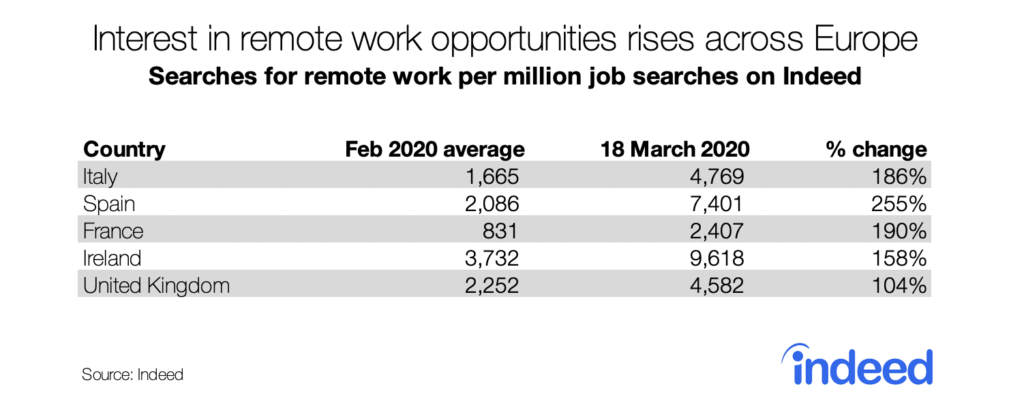Key points:
- Searches for remote work in the UK increased 104% as a share of all searches on Indeed since the COVID-19 crisis started
- Jobseeker interest in remote work surged across Europe as governments implemented containment measures, starting with Italy
Amid the COVID-19 crisis, jobseekers are increasingly looking for remote work. UK job searches for terms like ‘remote’, ‘work from home’ and related phrases have doubled as a share of all searches on Indeed since February. Most of this increase has happened since 14th March, the day when the Prime Minister advised people to avoid crowded places such as pubs.
British jobseekers’ interest in remote work lags that of their counterparts in other European countries, whose citizens became confined to their homes earlier in the month. Jobseekers in Italy shifted to searching for remote work on 8th March, when the initial lockdown of a few municipalities was extended to a quarter of the country’s population. By 18th March, searches for remote work as a share of all searches had exceeded their February average by 186%.

Interest in remote work then surged in other countries as governments implemented containment measures. Searches surged in Spain on 12th March, when school closures were announced all across the country, then surged again on 14th March when a nationwide lockdown was announced. France and Ireland were next, and finally the UK, where searches for remote work are now 104% higher than before the crisis.
These trends are not driven by seasonal variations because searches for remote work were flat over the same period last year.

If initial US data on unemployment claims is any guide, many people around the world are at risk of losing their jobs and incomes during the pandemic. Jobseekers are responding by looking for opportunities to earn money from home. We will continue to monitor these patterns and check whether employers are also responding with more offers of remote work, especially in sectors and occupations where working remotely is feasible.






